ON PURPOSE, I'M GOING TO LOVE YOU ON PURPOSE




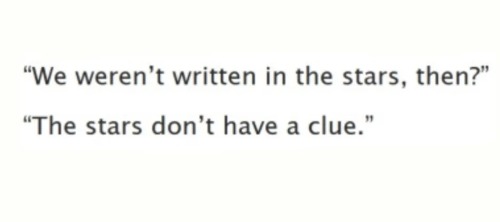
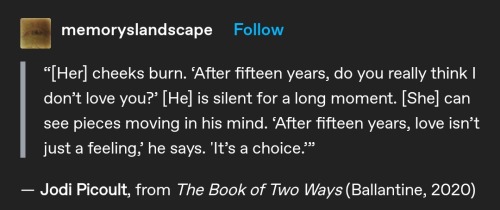


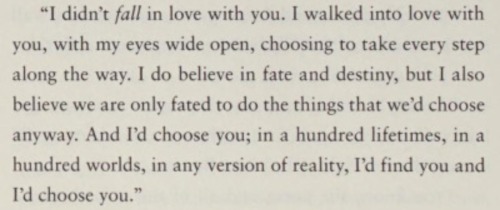
ON PURPOSE, I'M GOING TO LOVE YOU ON PURPOSE
Jenny Slate // Casey McQuiston, Red, White & Royal Blue // Pleiades, Anne Carson // Taylor Jenkins Reid, The Seven Husbands of Evelyn Hugo // @oriley42 and @earth167 (and a half) on Tumblr // Jodi Picoult from The Book Of Two Ways // The Night Vale, Episode 100, The Toast // Adam Melchor, I Choose You // Kierston White, The Chaos of Stars
More Posts from Autumnal-hues and Others
Cloud cuckoo land is such a good book in a way I can’t explain










“And God looked the other way”
@/avainblue // antigone, sophocles // @/sinfulscrapbook // unknown // it is right to draw their fur, dave eggers // day after tomorrow - phoebe bridgers // unknown // sun bleached flies - ethel cain // tonight I’m someone else, chelsea hodson // the war of vaslav nijinsky, frank bidart
I'M DOING AN EXPERIMENT
To prove something to a friend, please
REBLOG IF YOU THINK ASEXUALS BELONG IN LGBTQ+ SPACES
LIKE IF YOU THINK ASEXUALS DON’T BELONG IN LGBTQ+ SPACES
its been 2 months since i read cloud cuckoo land by anthony doerr and i havent really talked about it cause its not "fandomizable" or whatever but i started thinking about it again out of nowhere today so i gonna get my thoughts out here.
as you may know for the past several months ive been really into finding obscure music to listen to. not because i want to feel elite or superior or win the obscure music competition, but because its such an intimate experience to me. its like the artist is reaching across time and space to deliver me the song personally and entrusting it to me and I have to take care of it and share it with the people in my life so it can be loved and grow up big and strong. its especially true for songs that are 15 or 20 or 30 or more years old cause it makes me wonder where the artist is now and how theyre doing. their musical career may not have taken off, but it made its way to me all these years later. its touching, you know?
now imagine instead of a song from a decade or two ago that you can stream on spotify, it's a manuscript that's thousands of years old. five times over, across millenia, somebody discovered a story that was doomed to be lost forever and singlehandedly worked to rescue and preserve and share it so that it could keep on living, because it was important to them. whether the story is "good" or not, hell whether its even complete or legible, is not what matters. what matters is that for their own reasons, some part of it resonated with each of them, and they felt a responsibility to pass it on so it would not die with them.
to put it more crassly, cloud cuckoo land is basically a story about lost media. the need to preserve and record and recover information no matter how trivial it may seem is such a human thing to do and i love that
Rosemary? You mean spicy pine needles?
the phrase “curiosity killed the cat” is actually not the full phrase it actually is “curiosity killed the cat but satisfaction brought it back” so don’t let anyone tell you not to be a curious little baby okay go and be interested in the world uwu

A: Hi how are you?
B: Lemme disassociate real quick then get back to you.
B: I am just a body made from billions of years of evolution with lingering monkey brain. the universe doesn't even know I exist and nothing I do will ever matter. I'm just a character in a story laying my part because I know nothing else. if life is pointless and the universe is cold and indifferent then it's okay if I fuck up because that means nothing either, so I might as well be as reckless as possible while I'm alive for this sliver in time.
B: Hi I'm back, can I have an iced machiato with 15 pumps of vanilla please
A: What the fuck
Christopher Nolan: The Man Who Wasn’t There by Daniel Carlson
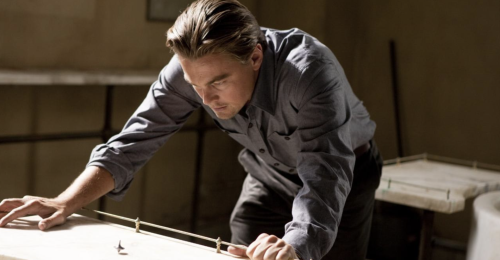
1.
So, we’ll start with the fact that all movies are make-believe. It’s a bunch of actors on a set, wearing costumes and standing with props picked out by hordes of people you’ll never see, under the guidance of a director, saying things that have been written down for them while doing their best to say these things so that it sounds like they’re just now thinking of them. We all know this—saying it feels incredibly stupid, like pointing out that water is wet—but it’s still worth noting. There is, for example, no such person as Luke Skywalker. Never has been, never will be. He was invented by a baby boomer from Modesto. He is not real.
And we know this, and that’s part of the fun. We know that Luke Skywalker isn’t real but is being portrayed by an actor (another boomer from the Bay Area, come to think of it), and that none of the things we’re seeing are real. But we give ourselves over to the collective fiction for the greater experience of becoming involved in a story. This is one of the most amazing things that we do as humans. We know—deep down, in our bones, without-a-doubt know—that the thing we’re watching is fiction, but we enter a state of suspended reality where we imagine the story to be real, and we allow ourselves to be moved by it. We’ve been doing this since we developed language. The people telling these stories know this and bring the same level of commitment and imagination and assurance that we do as viewers, too. The storyteller knows that the story isn’t real, but for lack of a better way to get a handle on it, it feels real. So, to continue with the example, we’re excited when Luke Skywalker blows up the Death Star because he helped the good guys win. For us viewers, in this state of mutually reinforced agreement, that “happened.” It’s not real, but it’s “real”—that is, it’s real within the established boundaries of the invented world that we’ve all agreed to sit and look at for a couple of hours. Every viewer knows this, and every filmmaker acts on it, too. Except:
Christopher Nolan does not do this.
2.
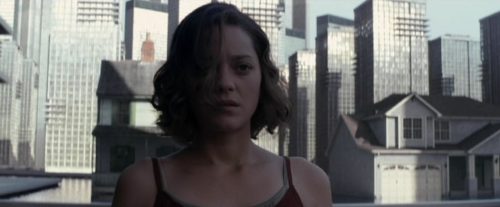
There’s no one single owner or maker of any movie, and anyone who tells you different has their hand in your pocket. But there’s an argument to be made that when somebody both writes and directs the movie, it’s a bit easier to locate a sense of personhood in the final product. (This is all really rough math, too, and should not be used in court.) Christopher Nolan has directed 11 films to date, and while his style can be found in all of them, his self is more present in the ones where he had a hand in the shaping of the story—and crucially, not just that, but in the construction of the fictional world. Take away the superhero trilogy, the remake of a Norwegian thriller, the adaptation of a novel, and the historical drama, and Nolan’s directed five films that can reasonably be attributed to his own creative universe: Following (1998), Memento (2000), Inception (2010), Interstellar (2014), and Tenet (2020). These movies all involve themes that Nolan seems to enjoy working with no matter the source material, including identity, memory, and how easily reality can be called into question when two people refuse to concede that they had very different experiences of the same event. Basically, he makes movies about how perception shapes existence. How he does this, though, is unlike pretty much everybody else.
Take Inception. After a decade spent going from hotshot new talent to household name (thanks to directing the two highest-grossing Batman movies ever made, as well as the first superhero movie to earn an Oscar for acting), he had the credit line to make something big and flashy that was also weird and personal. So we got an action movie that, when first announced in the Hollywood trades, was described as being set within “the architecture of the mind.” Although this at first seemed to be a phrase that only a publicist could love, it turned out to be the best way to describe the film. This is a film, after all, about a group of elite agents who use special technology to enter someone’s subconscious dream-state and then manipulate that person’s memories and emotions. The second half of the film sees team leader Dom Cobb (Leonardo DiCaprio) and the rest of the squad actually descend through multiple nested subconsciouses to achieve their goal, even as they’re chased every step of the way by representations of Mal (Marion Cotillard), Dom’s late wife, who committed suicide after spending too much time in another’s subconscious and lost the ability to discern whether she was really alive or still in the dream-world.
I say “representations” because that’s what they are: Mal is long dead, but Dom still feels enormous guilt over his complicity in her actions, and that guilt shows up looking like Mal, whose villainous actions (the representation’s actions, that is) are just more signs of Dom not being able to come to grips with his own past. It’s his own brain making these things up and attacking itself, and it chases his entire crew down three successive layers of dream worlds. You get caught up in the movie’s world as a viewer, and you go along because Nolan is pretty good at making exciting movies that feel like theme-park rides. You accept that Dom and everybody else refer to Mal as Mal and not, say, Dom. Dom even addresses her (“her”) when her projection shows up, speaking to her as if she’s a separate being with her own will and desires and not a puppet that he’s pretending not to know he’s controlling. It’s only later that you realize that the movie is in some ways just a big-budget rendition of what it would look like to really, really want to avoid therapy.
Which is what makes Nolan different from other filmmakers:
None of this is actually happening.
Again, yes, it’s happening in the sense that we see things on screen—explosions, chases, a fight scene in a rotating hallway that’s still some of the best practical-effects work in modern action movies—but within the universe of the film, none of what’s going on is taking place in the real world. It’s all unfolding in the subconsciouses of Dom’s teammates. In the movie’s real world, they’re all asleep on a luxury jet. They’re “doing” things that have an outcome on the plot, but Nolan sets more than half the movie inside dreams. It’s a movie about reality where we spend less time in reality than in fantasy. Half the movie is pretend.
For Nolan, filmmaking is about using a dazzling array of techniques to create a visual spectacle that distracts the viewer from the fact that the real and true story is happening somewhere else: in the fringes we can’t quite see, in the things we forget to remember, or even in the realm of pure speculation.
3.
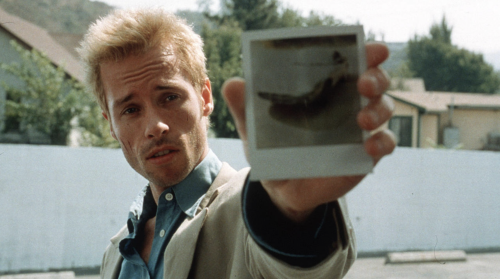
Keep reading
“I was reading a book in which contemporary society was compared to a multi-tenant building. The tenants are not bound together by common ideals. While they share a desire to protect the building from fire, the inner sufferings of other tenants mean nothing to them. Nor do they care about equality or human rights. Basic principles the state once held in esteem have broken down, so that even if a neighbor is covered in urine or feces, as long as one’s home doesn’t smell, one doesn’t interfere.”
— Yōko Tawada, Scattered All Over the Earth
-
 trenchcoatcryptid reblogged this · 2 weeks ago
trenchcoatcryptid reblogged this · 2 weeks ago -
 trenchcoatcryptid liked this · 2 weeks ago
trenchcoatcryptid liked this · 2 weeks ago -
 talkintolkien reblogged this · 2 weeks ago
talkintolkien reblogged this · 2 weeks ago -
 talkintolkien liked this · 2 weeks ago
talkintolkien liked this · 2 weeks ago -
 arcticpoetdiary reblogged this · 3 weeks ago
arcticpoetdiary reblogged this · 3 weeks ago -
 arcticpoetdiary liked this · 3 weeks ago
arcticpoetdiary liked this · 3 weeks ago -
 marley-mo liked this · 3 weeks ago
marley-mo liked this · 3 weeks ago -
 tumblerislovetumblerislife reblogged this · 3 weeks ago
tumblerislovetumblerislife reblogged this · 3 weeks ago -
 asteria-edalyn reblogged this · 3 weeks ago
asteria-edalyn reblogged this · 3 weeks ago -
 flyingthroughredlights liked this · 3 weeks ago
flyingthroughredlights liked this · 3 weeks ago -
 greatgardenpirate liked this · 4 weeks ago
greatgardenpirate liked this · 4 weeks ago -
 allarounddivinity reblogged this · 1 month ago
allarounddivinity reblogged this · 1 month ago -
 piratewithoutaship liked this · 1 month ago
piratewithoutaship liked this · 1 month ago -
 iwouldvebeendrake01 liked this · 1 month ago
iwouldvebeendrake01 liked this · 1 month ago -
 practicallyaduck liked this · 1 month ago
practicallyaduck liked this · 1 month ago -
 badwolf084 reblogged this · 1 month ago
badwolf084 reblogged this · 1 month ago -
 badwolf084 liked this · 1 month ago
badwolf084 liked this · 1 month ago -
 yjuniper reblogged this · 1 month ago
yjuniper reblogged this · 1 month ago -
 junebugfall liked this · 1 month ago
junebugfall liked this · 1 month ago -
 whatsinanamehonestly reblogged this · 1 month ago
whatsinanamehonestly reblogged this · 1 month ago -
 int3r3st1ng liked this · 1 month ago
int3r3st1ng liked this · 1 month ago -
 strangesuki liked this · 1 month ago
strangesuki liked this · 1 month ago -
 blackferrett18 liked this · 1 month ago
blackferrett18 liked this · 1 month ago -
 chaotic-art-h-oe liked this · 1 month ago
chaotic-art-h-oe liked this · 1 month ago -
 highprincessofthenightcourt liked this · 1 month ago
highprincessofthenightcourt liked this · 1 month ago -
 notsodeadmikaelson liked this · 1 month ago
notsodeadmikaelson liked this · 1 month ago -
 zocialite liked this · 1 month ago
zocialite liked this · 1 month ago -
 itrymyworst reblogged this · 1 month ago
itrymyworst reblogged this · 1 month ago -
 lady-llewellyn reblogged this · 1 month ago
lady-llewellyn reblogged this · 1 month ago -
 fluffyhairedmonster reblogged this · 1 month ago
fluffyhairedmonster reblogged this · 1 month ago -
 fluffyhairedmonster liked this · 1 month ago
fluffyhairedmonster liked this · 1 month ago -
 beedelia reblogged this · 1 month ago
beedelia reblogged this · 1 month ago -
 superqueasyyy liked this · 2 months ago
superqueasyyy liked this · 2 months ago -
 elliottparkerrr liked this · 2 months ago
elliottparkerrr liked this · 2 months ago -
 gentlygolden reblogged this · 2 months ago
gentlygolden reblogged this · 2 months ago -
 jbtwentytwo liked this · 2 months ago
jbtwentytwo liked this · 2 months ago -
 eggybaconeggyt reblogged this · 2 months ago
eggybaconeggyt reblogged this · 2 months ago -
 eggybaconeggyt liked this · 2 months ago
eggybaconeggyt liked this · 2 months ago -
 herr-forehead reblogged this · 2 months ago
herr-forehead reblogged this · 2 months ago -
 wee-pumpkin reblogged this · 2 months ago
wee-pumpkin reblogged this · 2 months ago -
 europasage liked this · 2 months ago
europasage liked this · 2 months ago -
 deactivatedand liked this · 2 months ago
deactivatedand liked this · 2 months ago -
 batwngs liked this · 2 months ago
batwngs liked this · 2 months ago -
 augusteofarles reblogged this · 2 months ago
augusteofarles reblogged this · 2 months ago -
 pink-eats-world liked this · 2 months ago
pink-eats-world liked this · 2 months ago -
 gaindragon liked this · 2 months ago
gaindragon liked this · 2 months ago -
 stoneanimalsxo liked this · 2 months ago
stoneanimalsxo liked this · 2 months ago -
 crackrodent liked this · 3 months ago
crackrodent liked this · 3 months ago -
 mr-nauseam liked this · 3 months ago
mr-nauseam liked this · 3 months ago

She/her | 20 | Mostly failing to "hold my balance on this spinning crust of soil."
108 posts